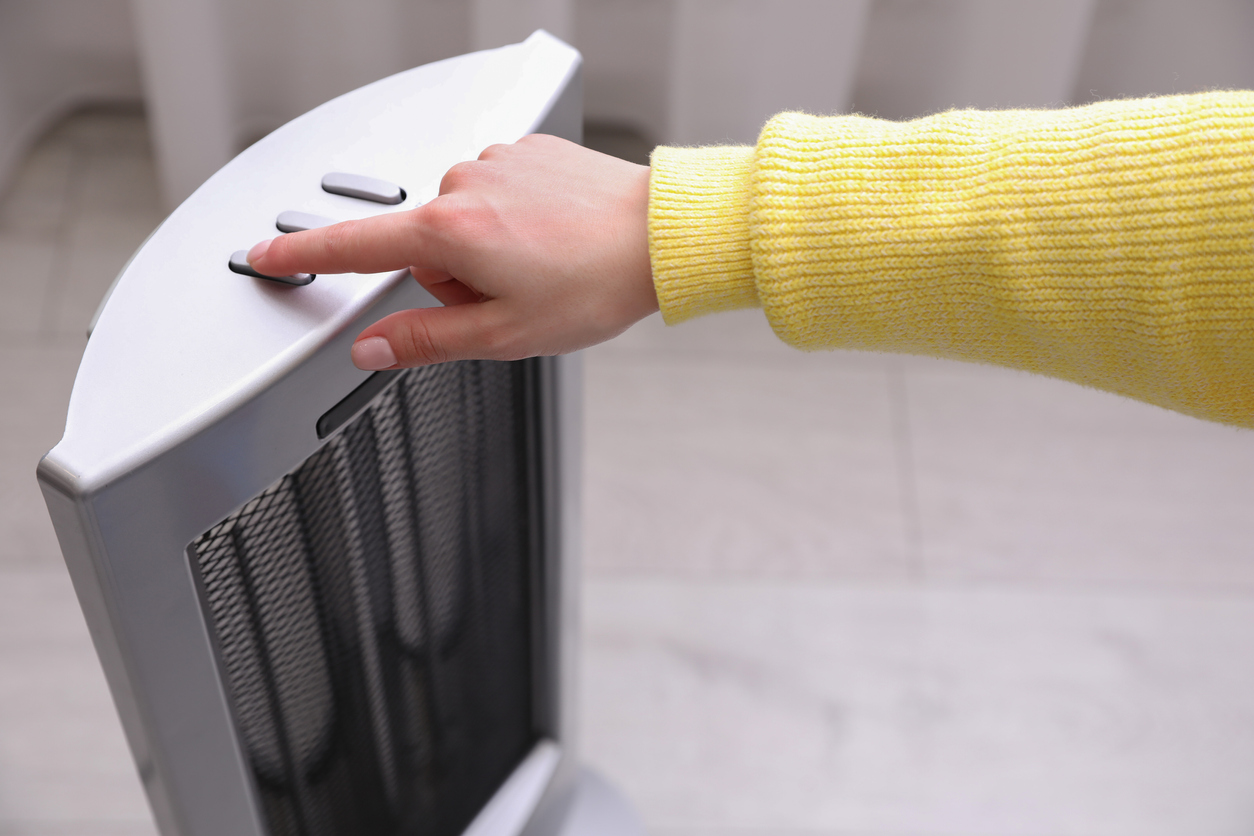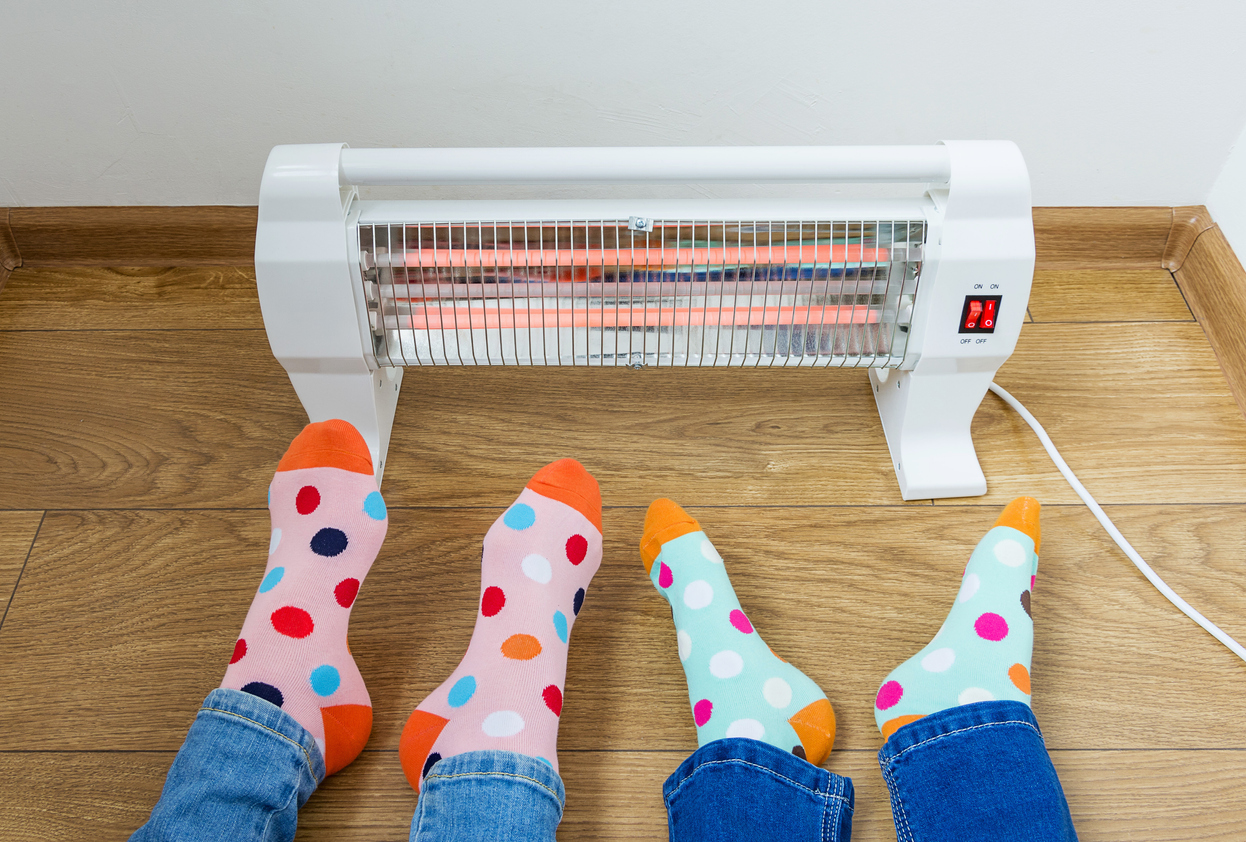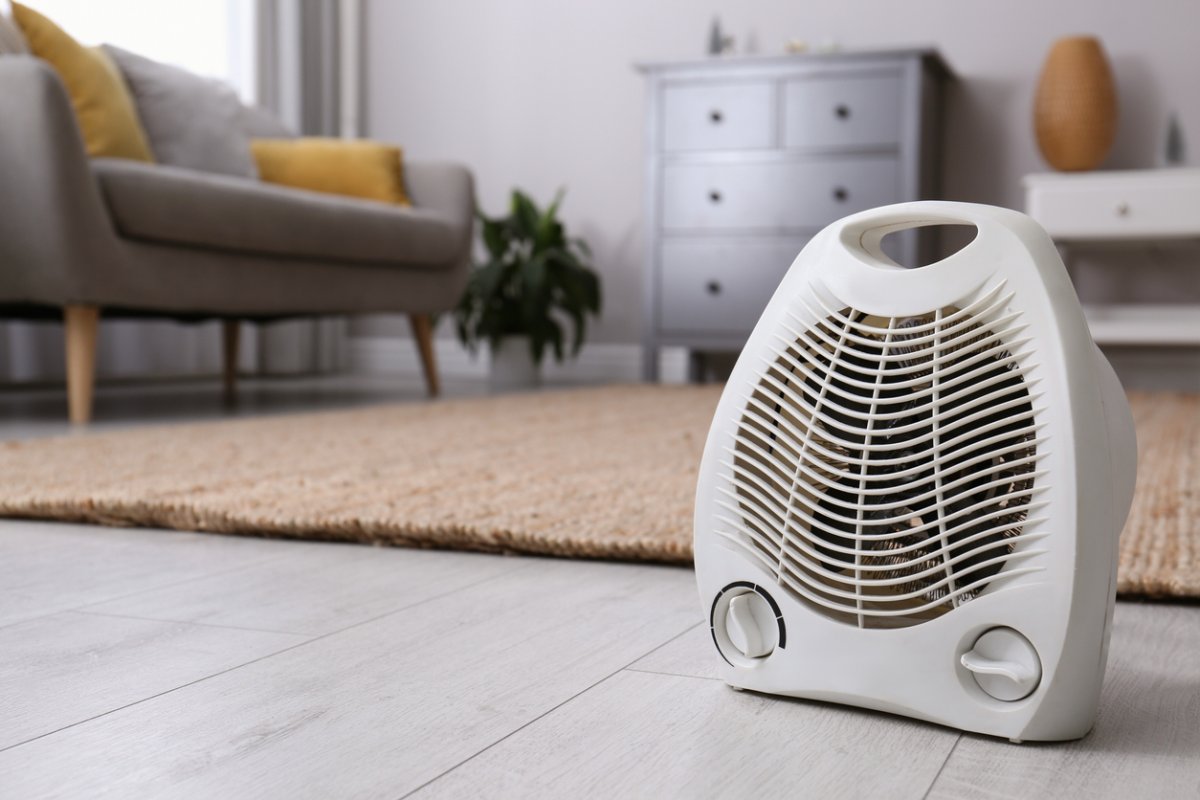We may earn revenue from the products available on this page and participate in affiliate programs. Learn More ›
Q: One of my upstairs bedrooms is always significantly colder than the rest of the house. I don’t use that bedroom much during the winter, however a family member is coming for a long visit and will be staying in there. I’ve never used a space heater before, and don’t know much about them. Do space heaters use a lot of electricity? How much does it cost to run a space heater?
A: Space heaters can save the day where central heating is not available. Unfortunately, there’s no cut and dry answer to the question, “How much does it cost to run a space heater?” A number of factors can impact the total cost, including the number of watts a space heater requires to operate, how long it runs each day, the electricity rates your utility company charges, and whether there are any energy-efficient space heater features integrated into its design.
Learn more below about these factors and what you can expect to pay to run a space heater.
On average, it costs about 24 cents per hour to run a standard 1,500-watt space heater.
How many watts does a space heater use? While space heaters can have different wattage demands, the majority of space heaters are 1,500-watt models. Running a 1,500-watt space heater for an hour costs approximately 24 cents on average.
Even though 24 cents probably doesn’t seem like a lot of money, keep in mind that it’s just the total for operating the space heater for 1 hour. That cost can increase quickly if you’re operating the space heater for several hours a day. For example, running a 1,500-watt heater for 8 hours a day can cost an average of $1.92 each day. That means it will cost many users just under $60 to operate the space heater for 8 hours every day for an entire month.
Our Recommendation: Dr. Infrared Heater Portable Space Heater at Amazon for $122.35
This 1,500-watt portable space heater offers two heat settings, a 12-hour automatic shut-off timer, electronic thermostat with a range between 50 and 85 degrees, and remote control for simple adjustments.
Operating a space heater at a lower setting can reduce costs.

Some space heaters offer a choice of settings, and using a lower setting can help reduce its total heating costs. For example, as demonstrated below, using a 750-watt setting instead of a 1,500-watt setting can save an average of 96 cents per day and $28.80 per month.
The below table shows the average cost of operating space heaters based on wattage. These figures are based on the current average 15.95 cent cost per kilowatt-hour (kWh) in the United States. Daily and monthly costs assume 8 hours of operation per day.
Average Costs of Running a Space Heater by Wattage
| Wattage | Average Cost Per Hour | Average Cost Per Day | Average Cost Per Month |
| 400 | $0.06 | $0.48 | $14.40 |
| 750 | $0.12 | $0.96 | $28.80 |
| 1500 | $0.24 | $1.92 | $57.60 |
| 3000 | $0.48 | $3.84 | $115.20 |
Local electricity rates can help determine precise costs.
While 15.95 cents is the average national electricity cost, electricity rates vary by location. The state of Washington currently has the lowest electricity rates at just 10.37 cents per kWh. This would work out to just 16 cents per hour to operate a space heater, compared to the national average of 24 cents per hour. The cost to run a space heater for a month would thus be $19 lower than the national average.
On the other hand, if you live in a state with higher electricity costs, be prepared to pay more than the above estimates. New Hampshire has the second-highest electricity rates in the country at 27.47 cents per kWh. This works out to a cost of 41 cents to operate a space heater for an hour, 17 cents higher than the national average. Running a space heater for 8 hours a day for a month would cost $98.40, which is $40.80 more than average.
Some utility companies also offer discounted rates during off-peak hours. This means that it may be less expensive to run your space heater at night than during the day when more people are using electricity, complicating these calculations further.
RELATED: The Best Space Heaters for Basements
Timers and other space heater features can boost energy efficiency.
If you’re looking for a garage heater or a space heater for a bedroom, consider energy efficiency. There are a few features that can make a space heater more efficient. For instance, space heaters with timers or an auto-off feature minimize waste by automatically shutting off the unit at a set time. Rather than leaving a space heater running in your bedroom all night, an auto-off or timer-enabled heater can run for a few hours to warm a room before shutting off to save energy and money.
Another feature that can impact space heater efficiency is an adjustable heat setting. As mentioned above, this allows you to choose a lower setting to reduce electricity demands. Smartphone-compatible space heaters can also be more energy-efficient because users can more easily control and adjust them as needed from anywhere in the home.
Space heater placement can also impact efficiency. Ideally, place your space heater under a window to prevent drafts of cold air from making the room feel colder, which also normally keeps the heater working harder to warm the space. Also, avoid placing any furniture in front of your space heater. Doing so obstructs the flow of heat around a room and makes the heater work harder to keep up.
Space heaters are a short-term solution for potentially larger home heating issues.

Infrared heaters and space heaters serve an important purpose. They offer a short-term solution for less-than-ideal heating conditions. However, if you’re debating a space heater vs. central heat, a space heater is not a permanent solution. Compared to central heat, space heaters are not as efficient, either. This can cause you to spend more than is necessary to keep your home warm during the winter months.
Space heaters also pose a greater fire risk than a central heating unit. With a space heater, there is too much room for human error, which may lead to an accident or fire. For example, inadvertently placing a space heater near combustible materials or not following proper maintenance procedures can make it more likely for a fire to break out. According to United States Consumer Product Safety Commission estimates, approximately 1,700 fires are caused by space heaters each year. These fires are responsible for about 160 injuries and 80 deaths.
Modern space heaters are safer than older models, but there are still things you can do to minimize the risk of a fire.
- Never leave a space heater on if you’re not home or in the space.
- Avoid leaving a space heater on for more than 10 hours at a time.
- When choosing a space heater, it is essential to purchase a high-quality model from a reputable company.
RELATED: 14 Space Heater Safety Mistakes That Could Burn Down Your House


